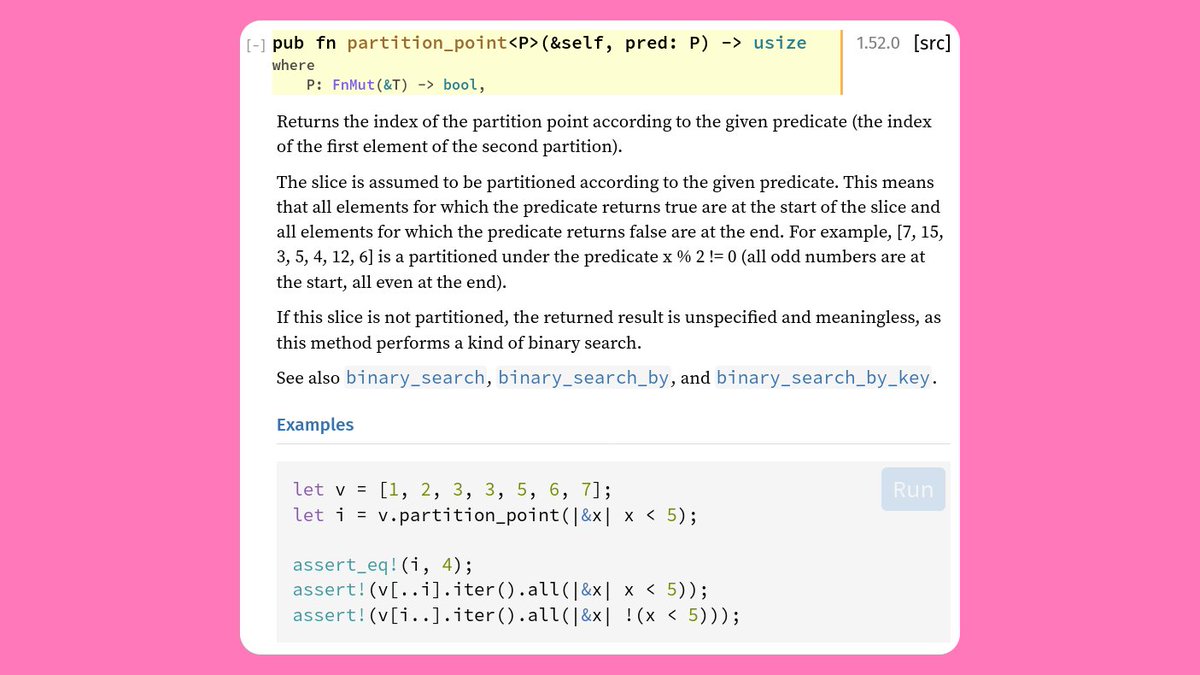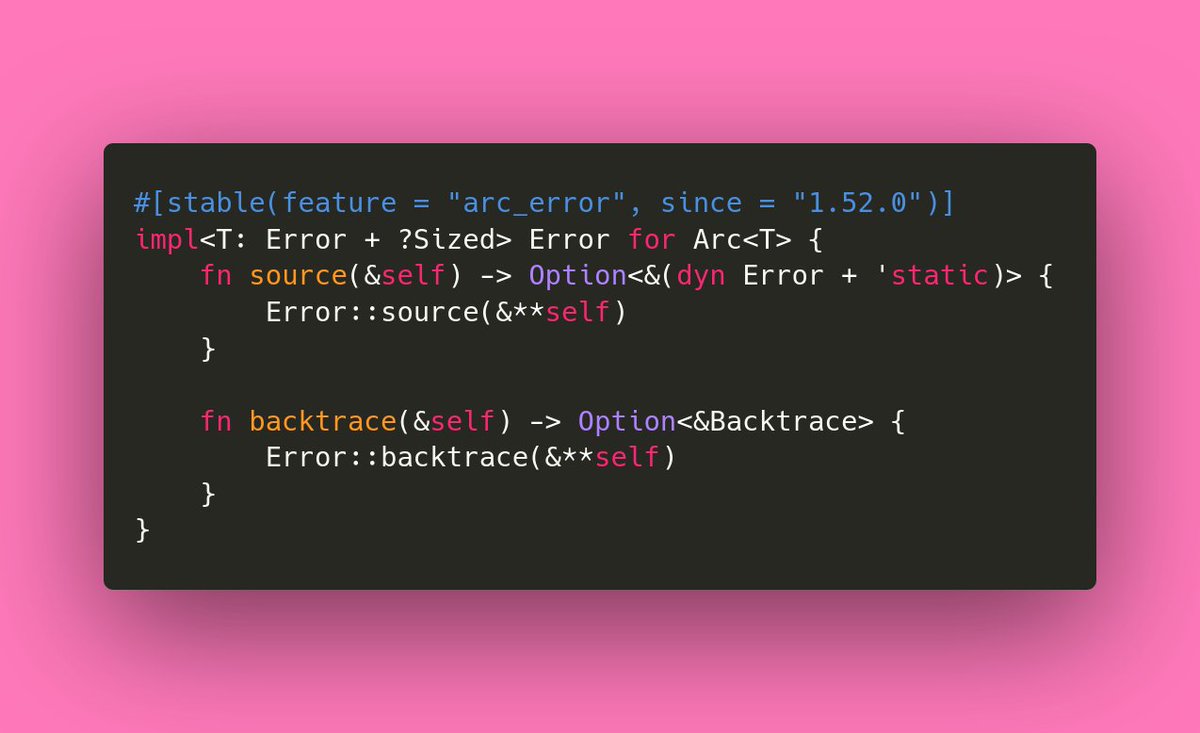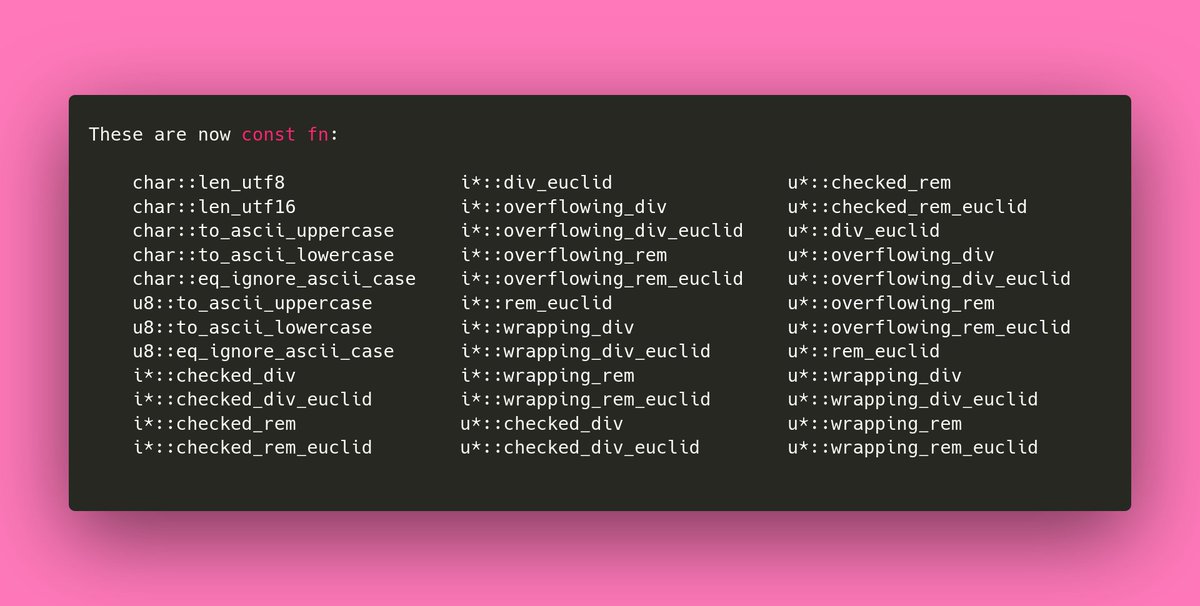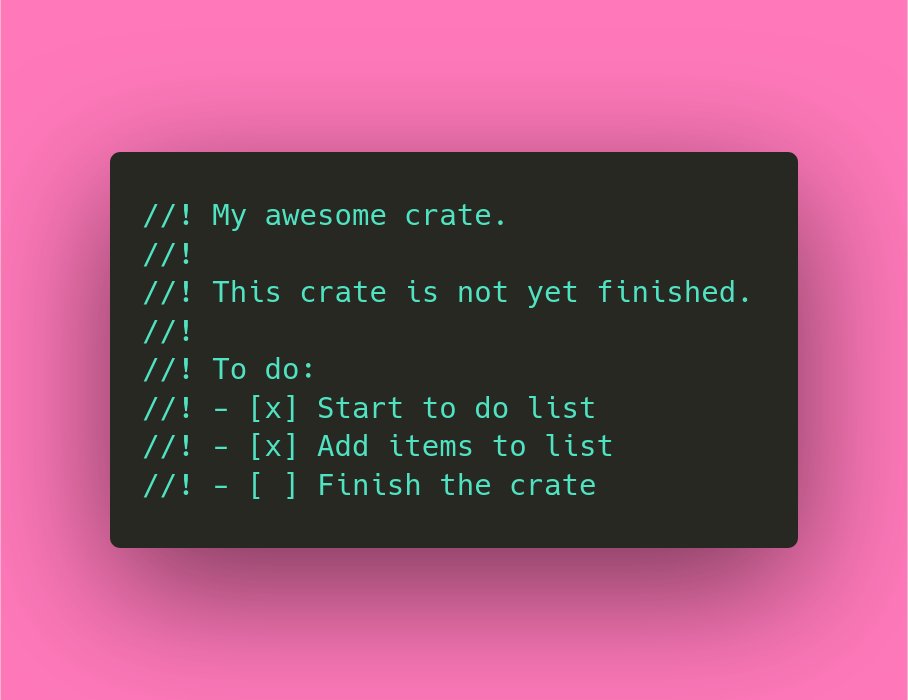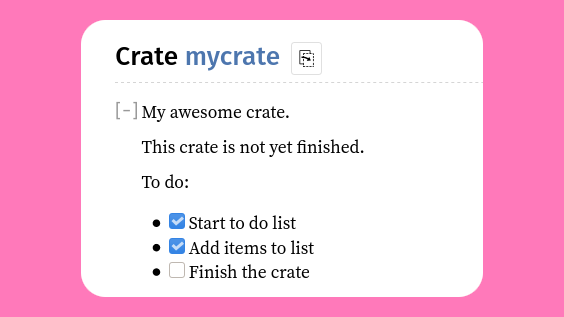The new stable version of @rustlang, Rust 1.52, was released just now!  https://abs.twimg.com/emoji/v2/... draggable="false" alt="🦀" title="Krabbe" aria-label="Emoji: Krabbe">
https://abs.twimg.com/emoji/v2/... draggable="false" alt="🦀" title="Krabbe" aria-label="Emoji: Krabbe"> https://abs.twimg.com/emoji/v2/... draggable="false" alt="🎉" title="Partyknaller" aria-label="Emoji: Partyknaller">
https://abs.twimg.com/emoji/v2/... draggable="false" alt="🎉" title="Partyknaller" aria-label="Emoji: Partyknaller">
This release contains quite a few new small but significant features.
A thread.
1/10 https://blog.rust-lang.org/2021/05/06/Rust-1.52.0.html">https://blog.rust-lang.org/2021/05/0...
This release contains quite a few new small but significant features.
A thread.
1/10 https://blog.rust-lang.org/2021/05/06/Rust-1.52.0.html">https://blog.rust-lang.org/2021/05/0...
My favourite new addition is `str::split_once`.
We already had str::split and str::splitn, which result in an iterator. But when parsing something simple, you often want to split something exactly once. For example, to parse a string containing `key=value`.
2/10
We already had str::split and str::splitn, which result in an iterator. But when parsing something simple, you often want to split something exactly once. For example, to parse a string containing `key=value`.
2/10
Another one I& #39;m excited about is one of the first features I worked on: std::fmt::Arguments::as_str()
fmt::Arguments is returned by format_args!(), and appears in macros that support formatting.
as_str() allows handling the literal case without special-casing your macro:
3/10
fmt::Arguments is returned by format_args!(), and appears in macros that support formatting.
as_str() allows handling the literal case without special-casing your macro:
3/10
Next: #[deny(unsafe_op_in_unsafe_fn)]
This forces you to write `unsafe` to call unsafe functions, even when inside an unsafe fn. Most unsafe functions have a mostly (or fully) safe implementation, so separating & #39;unsafe to call& #39; from & #39;unsafe implementation& #39; is often useful.
4/10
This forces you to write `unsafe` to call unsafe functions, even when inside an unsafe fn. Most unsafe functions have a mostly (or fully) safe implementation, so separating & #39;unsafe to call& #39; from & #39;unsafe implementation& #39; is often useful.
4/10
The casting operator (`as`) already allowed converting from a reference to an array to a pointer to the first element (from &[T; N] to *const T). Starting in Rust 1.52, this also works for the mutable case (from &mut [T; N] to *mut T):
5/10
5/10
Another important library feature: slice::partition_point.
This performs a binary search through a slice, given a (boolean) predicate.
With `<= x` or `< x` as the predicate, this is equivalent to the `upper_bound` and `lower_bound` algorithms of the C++ standard library.
6/10
This performs a binary search through a slice, given a (boolean) predicate.
With `<= x` or `< x` as the predicate, this is equivalent to the `upper_bound` and `lower_bound` algorithms of the C++ standard library.
6/10
If you like reference-counted errors, Rust 1.52 now implements the Error trait for all Arc<T> for which T itself implements Error:
7/10
7/10
As in most recent Rust releases, more functions are turned into `const fn`s to allow use in compile-time evaluated expressions.
This time it& #39;s the ascii upper-/lowercase functions, char::len_utf8 and len_utf16, and all the integer division/remainder functions:
8/10
This time it& #39;s the ascii upper-/lowercase functions, char::len_utf8 and len_utf16, and all the integer division/remainder functions:
8/10
The last new feature I want to highlight is a Rustdoc feature: Task lists.
With the same syntax that& #39;s supported by some other markdown variants (e.g. GitHub& #39;s), you can now add checked and unchecked checkboxes in your documentation:
9/10
With the same syntax that& #39;s supported by some other markdown variants (e.g. GitHub& #39;s), you can now add checked and unchecked checkboxes in your documentation:
9/10

 Read on Twitter
Read on Twitter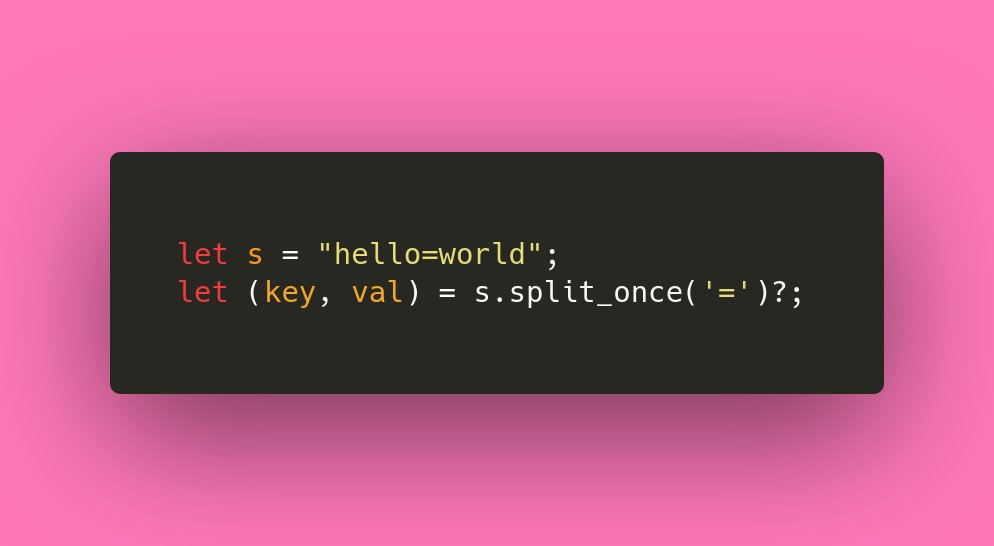
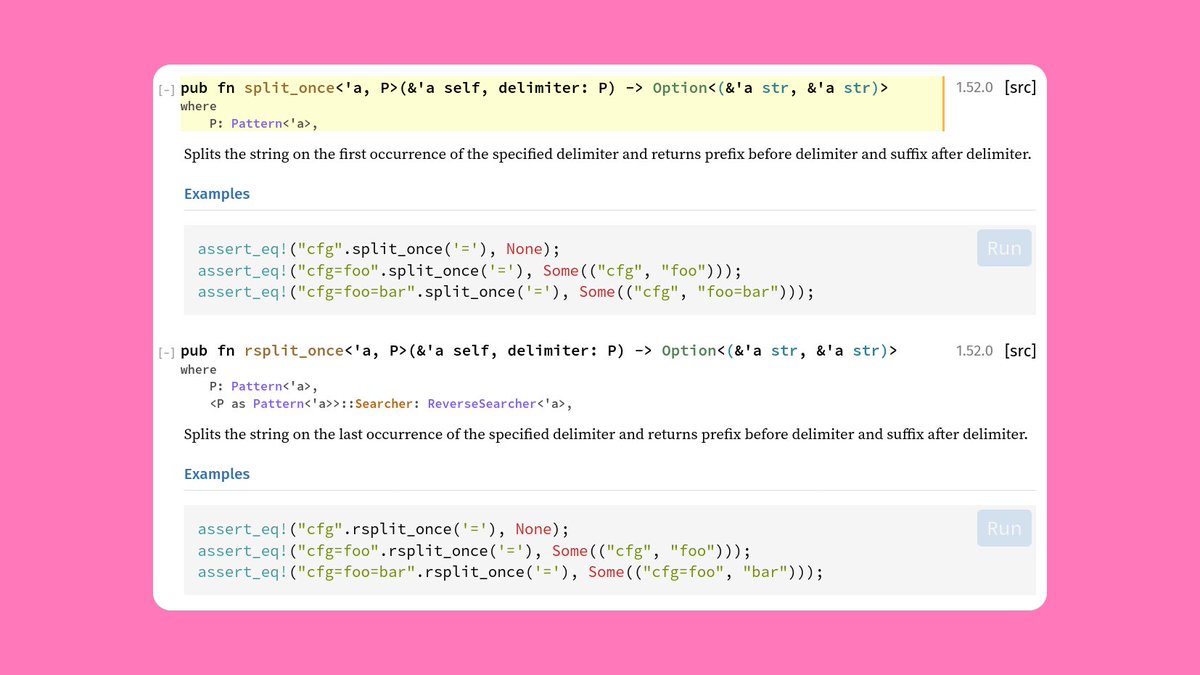
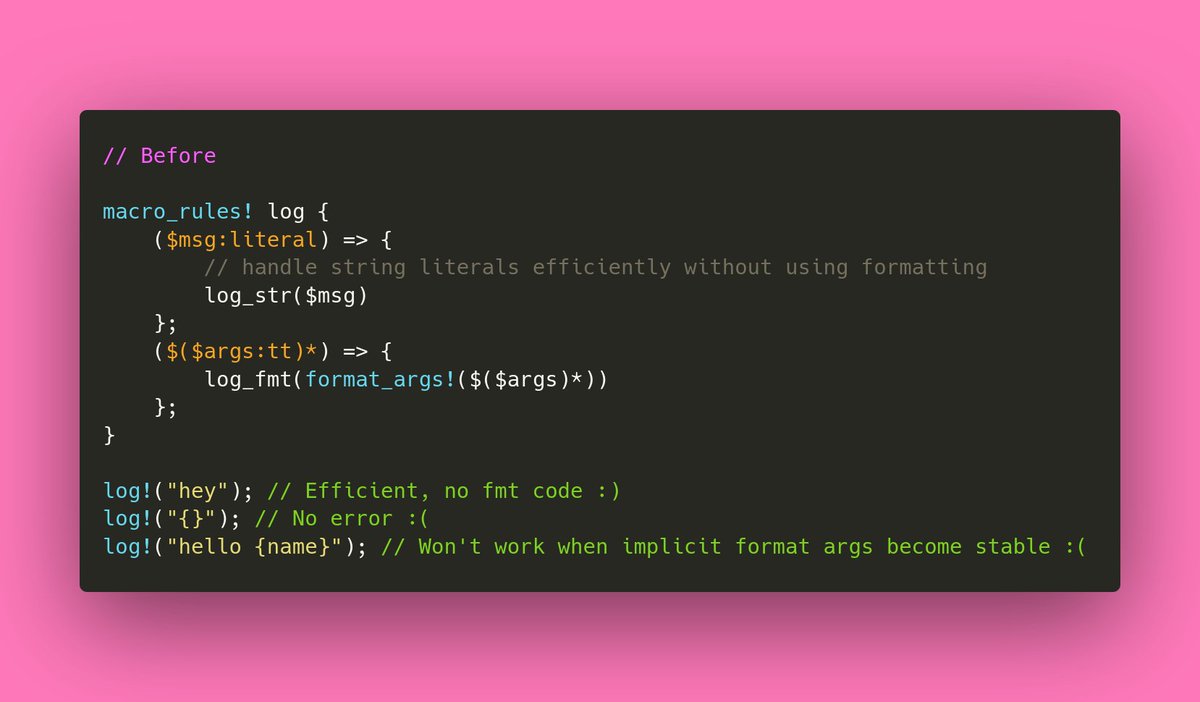
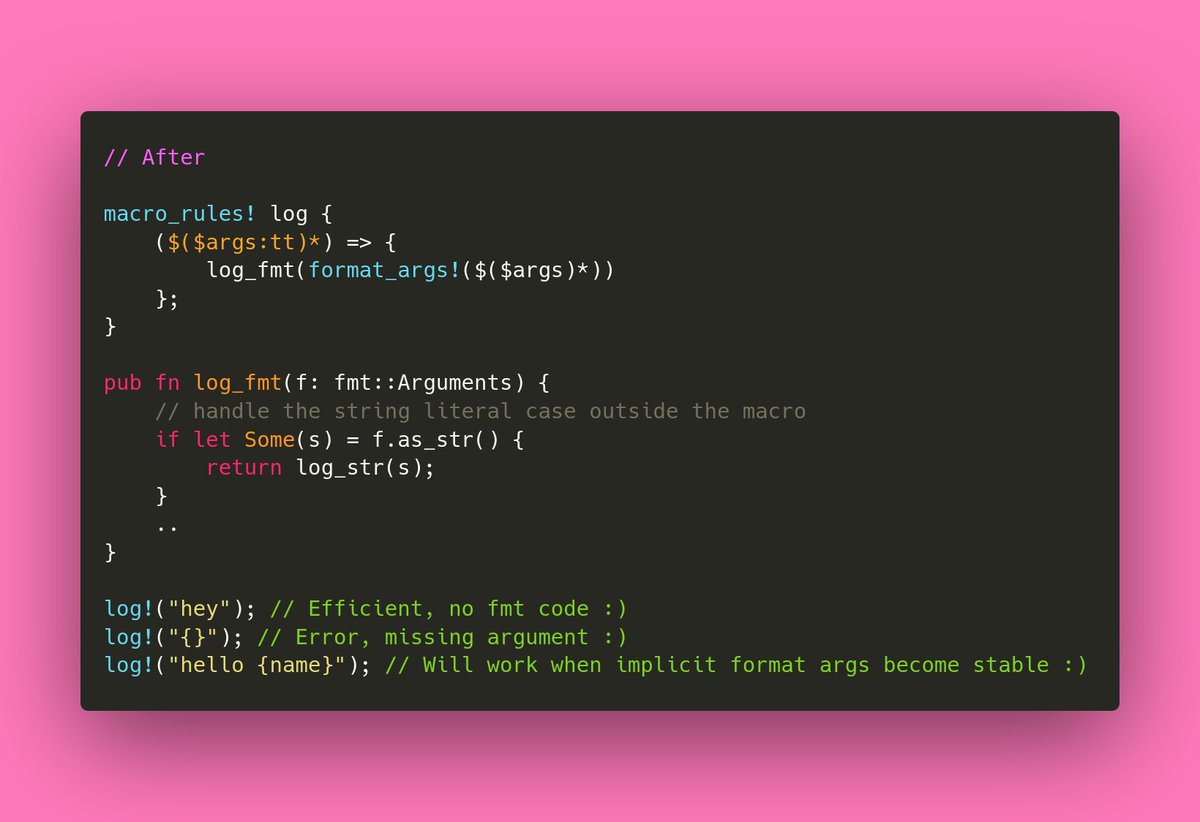
![Next: #[deny(unsafe_op_in_unsafe_fn)]This forces you to write `unsafe` to call unsafe functions, even when inside an unsafe fn. Most unsafe functions have a mostly (or fully) safe implementation, so separating & #39;unsafe to call& #39; from & #39;unsafe implementation& #39; is often useful.4/10 Next: #[deny(unsafe_op_in_unsafe_fn)]This forces you to write `unsafe` to call unsafe functions, even when inside an unsafe fn. Most unsafe functions have a mostly (or fully) safe implementation, so separating & #39;unsafe to call& #39; from & #39;unsafe implementation& #39; is often useful.4/10](https://pbs.twimg.com/media/E0uCDJ_XEAU2O4l.jpg)
![The casting operator (`as`) already allowed converting from a reference to an array to a pointer to the first element (from &[T; N] to *const T). Starting in Rust 1.52, this also works for the mutable case (from &mut [T; N] to *mut T):5/10 The casting operator (`as`) already allowed converting from a reference to an array to a pointer to the first element (from &[T; N] to *const T). Starting in Rust 1.52, this also works for the mutable case (from &mut [T; N] to *mut T):5/10](https://pbs.twimg.com/media/E0uDPkhWYAIYsqQ.jpg)
